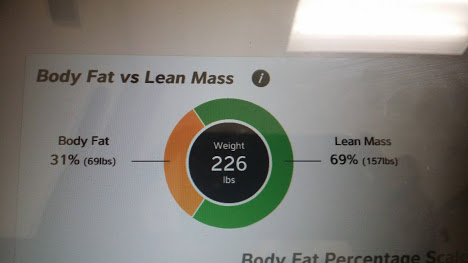So far, the protein calculator formulas I’ve seen are all based on height, on the assumption that if you’re X tall, of Y gender, with Z build, you “ought” to weigh this or that.
On the other hand, a body composition monitoring tool can guess how much your lean body mass is.
Hearing the phrase “a ketogenic diet is protein sparing” put the idea in my head, Richard Morris saying on the podcast that he has higher than average lean body mass for his height gave birth to the idea, and seeing a number on the HiGi Station (see picture) gave the idea a graduation cap and gown.
So, what do you all think? Is it better to just go by height, or just assume 72 kilograms?

